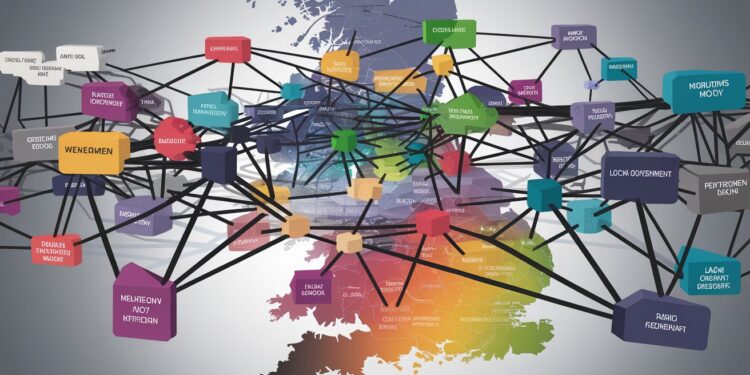England’s local councils are bracing for a massive shakeup as the government unveils plans for a sweeping overhaul of local government – but the move has ignited a political firestorm over fears that it could force the postponement of upcoming local elections. Opposition parties are crying foul, accusing the ruling party of attempting to dodge voters in areas where they were hoping to make significant gains.
Council Mergers Spark Election Delay Concerns
Under the government’s ambitious devolution white paper, spearheaded by Communities Secretary Angela Rayner, every area currently governed by two-tier county and district councils will be asked to submit plans for mergers, with the aim of creating larger unitary authorities of around 500,000 people each. Ministers argue that this streamlining will help empower local authorities – but it’s also likely to mean that elections in some areas will have to be delayed.
Local Government Minister Jim McMahon acknowledged that the government “may look at postponing” some local elections next year, but stressed that any delay “wouldn’t be for longer than a couple of months, a year.” Officials have indicated that it’s probable some areas will need to request delays to avoid the awkward scenario of voters electing a council, only to see it scrapped halfway through its term.
Opposition Outrage: “Dodging Voters”?
This prospect has infuriated the Conservatives and Reform UK, who were banking on making substantial gains in the affected rural counties across England, including Kent, Essex, Sussex, and Lancashire. Shadow Justice Secretary Robert Jenrick took to Twitter, fuming: “Elections should only be postponed in truly exceptional circumstances … Maybe Labour don’t want to face the electorate?”
“We don’t see why we should have to have a top-down mayoral model and be told we have to have another reorganisation five minutes after the last one.”
– Tim Farron, Liberal Democrat MP
Reform UK party chair Zia Yusuf went further, directly accusing the government of “trying to stop the English county council elections.” The backlash highlights the political minefield the government must navigate as it attempts to redraw England’s local government map.
Empowering Mayors, Forcing Change
Beyond the contentious council mergers, Rayner’s white paper also seeks to create more directly-elected mayors – even if that means central government imposing them on certain areas. The goal is to give these mayors expanded powers, but some local leaders are bristling at what they see as a heavy-handed approach.
“We would like to see commitments to exploring fiscal devolution, to mature the model of devolution and allow regional leaders to make more big calls for their areas.”
– Zoë Billingham, Director of IPPR North
Tim Farron, Liberal Democrat MP for Westmorland and Lonsdale, blasted the “top-down mayoral model,” questioning why his area should have to endure another reorganization so soon after the last one. Other critics argue that the proposed changes don’t go far enough, calling for mayors to be granted broader tax-raising powers to truly devolve control.
Remaking Local Government: A Herculean Task
Despite the fierce pushback, many local government experts have cautiously welcomed the reforms, noting that England remains one of the most centralized countries in the developed world. Jonathan Carr-West, chief executive of the Local Government Information Unit, hailed the white paper as “ambitious and far reaching,” arguing that localism is “both a democratic good and a better way of getting things done.”
Still, the government faces a Herculean task in attempting to remake England’s local government landscape while balancing the competing demands and concerns of councils, mayors, and opposition parties. As the battle over potential election delays rages on, it’s clear that the road to devolution will be a bumpy one – and the political fallout could be felt for years to come.
For now, local authorities and voters alike are left to watch and wait as the high-stakes negotiations unfold. With the fate of next year’s local elections hanging in the balance, all eyes will be on Whitehall to see if the government can navigate this political tightrope – or if its bold devolution gambit will ultimately be undone by the very councils and mayors it seeks to empower.








